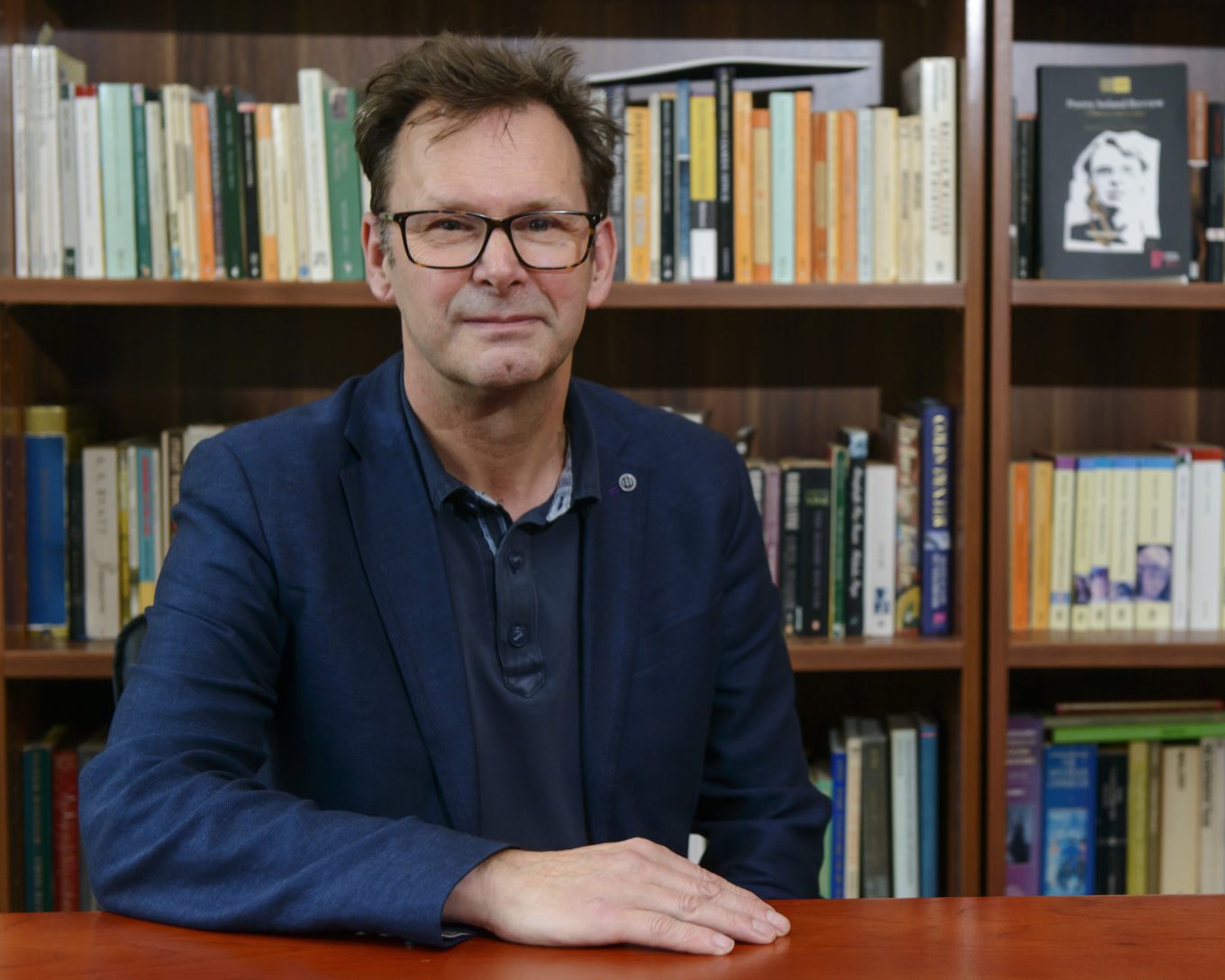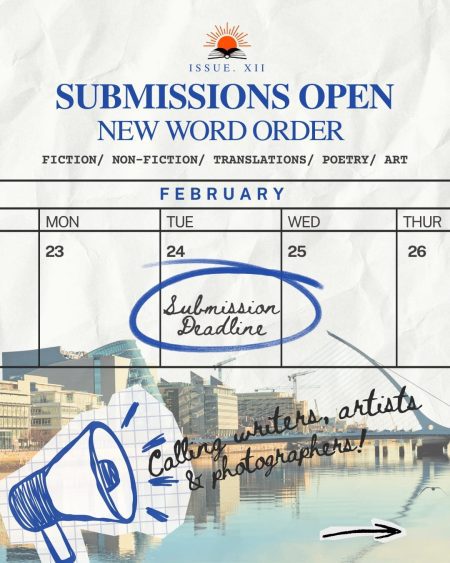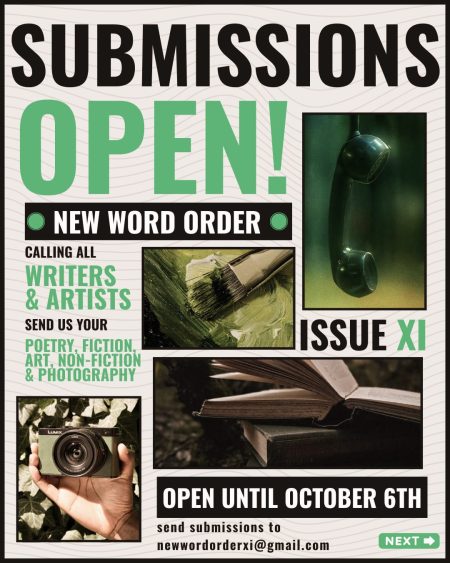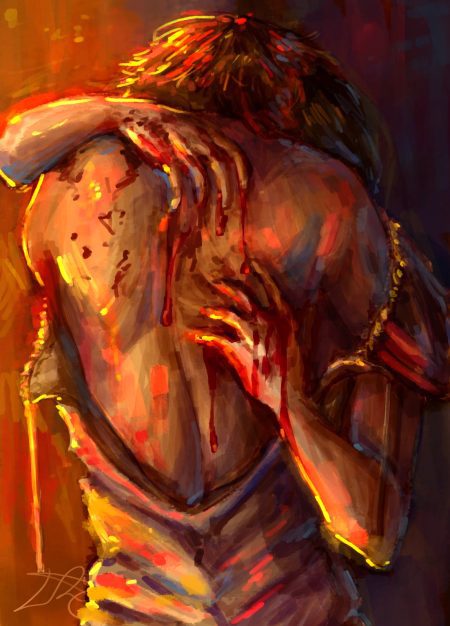Ian Davidson is an accomplished poet, author, and essayist. An expert in modern and contemporary poetics, he is currently a professor in University College Dublin’s School of English, Drama, and Film, teaching poetry and creative writing. His most recent collection, New and Selected Poems, was published in March 2022 and includes new and recent pieces, along with choice work from his previous publications with Shearsman Books.
In this interview, Davidson talks about his methods, motivation, and inspiration – along with advice for your own “writing practice.”
Conducted and Edited by Connor Gray.
To start off, why don’t you tell us a bit about your work, and your creative vision?
Well, I’ve been writing poetry for a very long time, and I’ve been publishing since the early 1980s. So that’s over forty years, really, that I’ve been writing and publishing. I haven’t published consistently all the way through that; I mean, sometimes I publish more than others. But recently I’ve been publishing quite hard, for a few years now.
What I’ve tried to do as far as writing poetry is concerned, and I’ll just talk about poetry in this; I have written some prose fiction, but really poetry is what I’ve mainly done. At first, what I’ve tried to do, is talk about things within poetry that very often don’t get talked about. So I’ve tried to bring into poetry a lot of my early working life before I was an academic. I worked in a variety of places; I worked on farms, I worked on building sites, all sorts of places. And really, I suppose, I encountered a lot of language, a lot of attitudes, a lot of things that people said and did, that I didn’t really see showing up that often in poetry. Or if they did show up in poetry, then it showed up in a kind of, I don’t know, slightly patronising way. As if like, “we’re looking at the farm workers now, aren’t they quaint,” you know? Whereas I didn’t feel like that, I felt very differently, and tried to represent them in different ways. Whether I’ve succeeded or not, well, history will tell. But even in the New and Selected Poems, I’ve got poems about plastering, you know, about plastering walls. Not many people write about plastering in poetry, particularly modernist, free verse poetry. So that’s something I’ve tried to do.
In terms of influences on the forms of poetry that I’ve used, I’ve been very influenced by mid-century and early 20th century, late 20th century and early 21st American poetics. I suppose I would have described it a few years back as the Ezra Pound tradition. It’s a modernist way of writing which doesn’t necessarily prioritise connections that are that easy to make; it’s about trying to develop a form in which one could include a lot of different things, in the way that people like Pound did. So that’s the poetic tradition that I’ve been working in. I’m not entirely sure that’s the most recent; and neither was one reviewer, Peter Riley, entirely sure that my latest work, which has been written here in Ireland, From a Council House in Connacht and By Tiny Twisting Ways, remains in that American modernist tradition. He was saying, I’ve moved away from that, and I think I might have moved away from that as well. Now, what was the cause of that, I haven’t really worked out yet, but I certainly do seem to be writing in ways that are more narrative, and perhaps clearer. Or more joined up.
I do see a movement of different influences in your work, in Twisting Ways and New and Selected Poems. Like the seven-syllable line. Could you tell us a bit about that?
Well, that’s drawing on very ancient – like sixth century to tenth century, really – very early Welsh, and then Irish poetry, which often use syllable counts. It’s not qualitative, in the sense that it’s iambic and it’s got different stress patterns; it’s quantitative, and it’s just a syllable count. So it’s not looking at the iambic, “I wandered lonely as a cloud,” rhythm. The reason I liked using it was, it made me really think about lines; where lines ended and where they began. I had to cut the line at seven syllables, whether I liked it or not, and that often made me rewrite the line.
Now, early Welsh and early Irish poetry also had very complex patterns of prosody, which I don’t use all that much. I did use a bit in some early poems, which I suspect you won’t have seen. What I’ve been using is that seven syllable line. I quite like the idea that it makes a kind of unnatural sound in English. I’m trying to denaturalise English a little bit, and say, well actually, there’s other languages around. I speak Welsh fluently, and I’m trying to learn Irish. And we see, don’t we, the influence of Irish, even if we don’t speak Irish, in a lot of the ways people speak, and patterns of speech, and things like that. So using that seven syllable is a little bit of a prod at that.
And do you find that the unsettling of English comes across better aloud or written down? Do you prefer a specific way to read it?
I mean, every performance is different, isn’t it? Wherever you’re doing it, you always feel a bit different. Although I do practice for a performance, and I know what I’m going to read exactly, and I will have read it out a few times beforehand, on the night, you don’t necessarily read it in any one way. So I don’t have a particular way of reading any poem.
A sequence that I read very often, which is a sequence called “Into Thick Hair,” which actually is one of those seven syllable sequences. Sometimes I let the syntax govern it, I’m not stopping at the end of a line, I’m running on with the syntax; sometimes I let the lines govern it. Sometimes I go really fast, and sometimes I try and go a bit slower. It’s hard, you know. It kind of happens on the day. I’m not saying it’s some sort of magical thing or anything, but it is a bit unpredictable, for me anyway. And maybe I quite like that there’s an unpredictability about performance. It might be that sometimes you think, I could have read those better, but also I quite like the notion that you kind of rediscover the poems. When you read them, you’re not just enacting them, you’re rediscovering what’s in them and how they work.
You mentioned one of your sequences there. I noticed that you often grouped your work that way, and I was wondering, have you ever had to discard a poem you like because it doesn’t fit? Or include something you don’t because it fits?
I think that’s a really good question. The one thing I’d say about writing in sequences is, it often makes it quite hard to get published in magazines. So if your interest, if your overriding concern is to get published in magazines, then write things other than sequences as well.
But I do like the way which, through a sequence, you can kind of explore things through different perspectives, you know, and different connections. And if you think of a poem as something that – what poems often do is, they make connections evident that weren’t previously evident, right? They may connect things that don’t necessarily connect that easily. The sequence, of course, gives you a bigger time period, or bigger space, in which to make those connections. So that’s why I like the sequence, that notion of exploration of something.
And, whether there are things that don’t go in there. I don’t necessarily think that’s been problematic. No, I think what I would do then is I’d try and make an individual poem out of it, if I really liked it, and lift it out of the sequence. But often a sequence is not necessarily on a theme; it might be a way of working. I wrote a sonnet sequence called “Harsh,” published in about 2004. There’s about thirty, I think, thirty-nine sonnets; well, thirty-nine fourteen line poems. And that sequence wasn’t governed by a theme. It was actually governed by a way of working. So it’s a process I kept re-using to make these fourteen line poems. It was a process of collaging, actually, from a lot of work I had. Or it’ll be a sound; I’ll get a particular sound going. You run that through the sequence, or particular diction, or way of talking.
And all these different sources of inspiration and methods, is that how you stay motivated enough to keep producing new things?
Well, yeah. Very early on, I had someone in university who taught me, who was a poet called Ralph Hawkins. We didn’t have formal creative writing classes then, but I showed him these poems and I said to him, “Do you like them,” and he said “Yes, I like them.” I said, “Well, do you think I should keep writing,” and he said, “Well, if you have to.” And he really meant that in a very positive way.
I suppose, over the years, what I’ve come to realise is that I need to write. You know, it’s like things don’t seem quite – well, I just do it. Sometimes, I don’t know, I’ve been really busy at work, young kids, and all that stuff. Maybe a little time will go past, a few weeks, and you haven’t written anything, and you think, oh, maybe I’ll never write anything again. But you do. It comes, and it comes. Then sometimes, I get more time. I’ve been an academic now for about twenty-five years. So during that period, writing is part of what you do. I write critically as well, about other people’s poetry too, so I’ve always got writing things on the go, now.
Yeah, I think it’s stimulating, having other people around. But also, I get really stimulated just sitting in a room on my own! I quite like that, you know? I think that’s what I like most of all. And I like publishing; I think without publishing it wouldn’t feel whole for me. You couldn’t just keep writing and pile it up on the side; in the end you have to do something with it. And if no one ever wanted to publish it, I suppose you’d think oh, well, you know. So I do publish. But for me, what’s exciting is just making things, making a poem. I love making other things too, but I really like making a poem.
On that role as an academic; it’s a kind of role reversal from the anecdote you shared. How has your perspective changed, going from the beginner writer to the teacher?
Well, I shouldn’t say this, but I always feel like I’m a beginner writer. Every time I sit down to write a poem, there’s something about – you know, I’m starting all over again. Of course, I’m not; because I’ve written lots of poems, and I’ve published lots of poems, and people have said things about my poems. But there’s always a sense in which I’m a beginner. And I think every time you start to write a new poem, unless you’re just going to repeat what you’ve written before – and I mean, who’d want to do that? – you always try to do something different or exciting. You don’t want to get bored with yourself, do you? That would be a terrible thing to happen.
So it is about trying to transmit some of that excitement about making poetry to students. I think, one of the things I really try and do, and to some extent this comes from my reading, and from my critical practice as much as it does from my creative practice, is try to give students the permission to write in the ways that they want to. It’s like, not saying “I can’t do that,” or “Well, that’s not allowed.” What I really love in my class is when students say, “Oh, I didn’t realise I could do that!” Yes, you can do that, you know? So it’s looking at things like visual poetics, it’s looking at sound-based poetry, it’s looking at a whole range of things that actually might challenge and distort, and develop from perhaps the more conventional poetics they might have come across at school. It’s about trying to move people into that area where they can really understand what forms are available to them, what processes and what methods of writing are open to them. It’s not about trying to get people to write like me; Heaven forbid, that’s really not what I’m doing at all. It’s actually getting them to write like them. That’s the really important thing. And doing that from a position of strength, where they really know what’s available to them.
So a lot of time, when I’m teaching, I’ll be showing poems. I say, “Look at that, what do you think of that? Anything that works? Why do you think it does that?” And it’s not looking at poems the way you do it in an English lit class, it’s looking at it and saying, how do they do that, how does that poet get that to work in that way? So that’s what I’m trying to do all the time, really.
Well then, to finish off, any advice for people with a similar need to write, but are stuck in slump?
I think the important thing is to have a writing practice. You ask yourself, don’t you, what does it mean to be a poet from a day-to-day basis. When I get up in the morning, and I’m a poet, what do I do? Well, you don’t actually just write poetry all day, because you’d write so much poetry it’d be unbelievable. But you do have to have a writing practice. If you find yourself in a situation where you’re really not producing much work, I think you’ve just got to use that practice to keep writing. Set yourself something like, I don’t know, half an hour a day, where you’re just going to sit down and write, and don’t worry too much about what you write, whether it’s any good or not, who’s going to see it; just write. Just write and see what comes out. Because sometimes, you know, it might go on for a month or two. We’ve just got to write things out of ourselves; we’ve got a load of rubbish inside us, and we’ve just got to write it out. But when you get rid of that, you get to the stuff that’s good.
The other comparison that I often use is that, 100-metre sprinters in the Olympics don’t always run the fastest 100 metres, you know? They have to do an awful lot of practice before they actually do that 100-metre sprint which is going to break the world record. And as writers, I think we’re not that different; I think we have to keep practicing and think of it as practice. Allen Ginsberg said something about, you should always write as if you’re never going to have to show this to anyone. Never feel repressed by it, otherwise you get overcome thinking, nobody’s going to like it, it’s going to be awful. But actually, just write it, and just see what comes out. And sometimes, you might write a page or two, or quite a few stanzas of complete nonsense, and then something comes out of it; oh, yeah, that’s actually what I want to write, that’s where I want to get to. So yeah, the important thing is to keep doing it, and good stuff will come.



